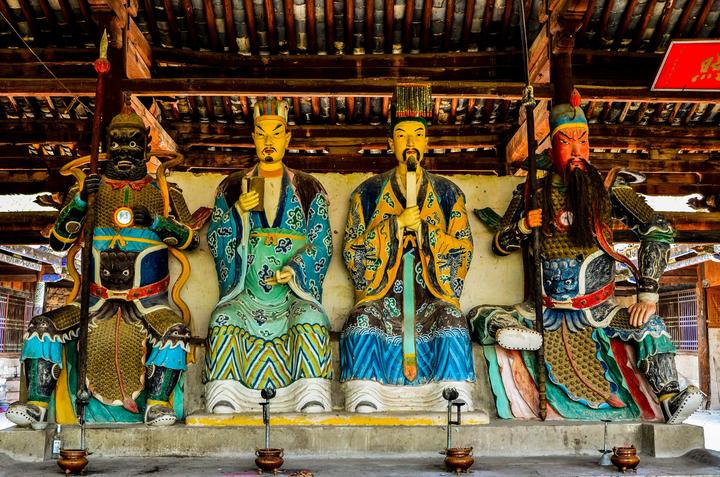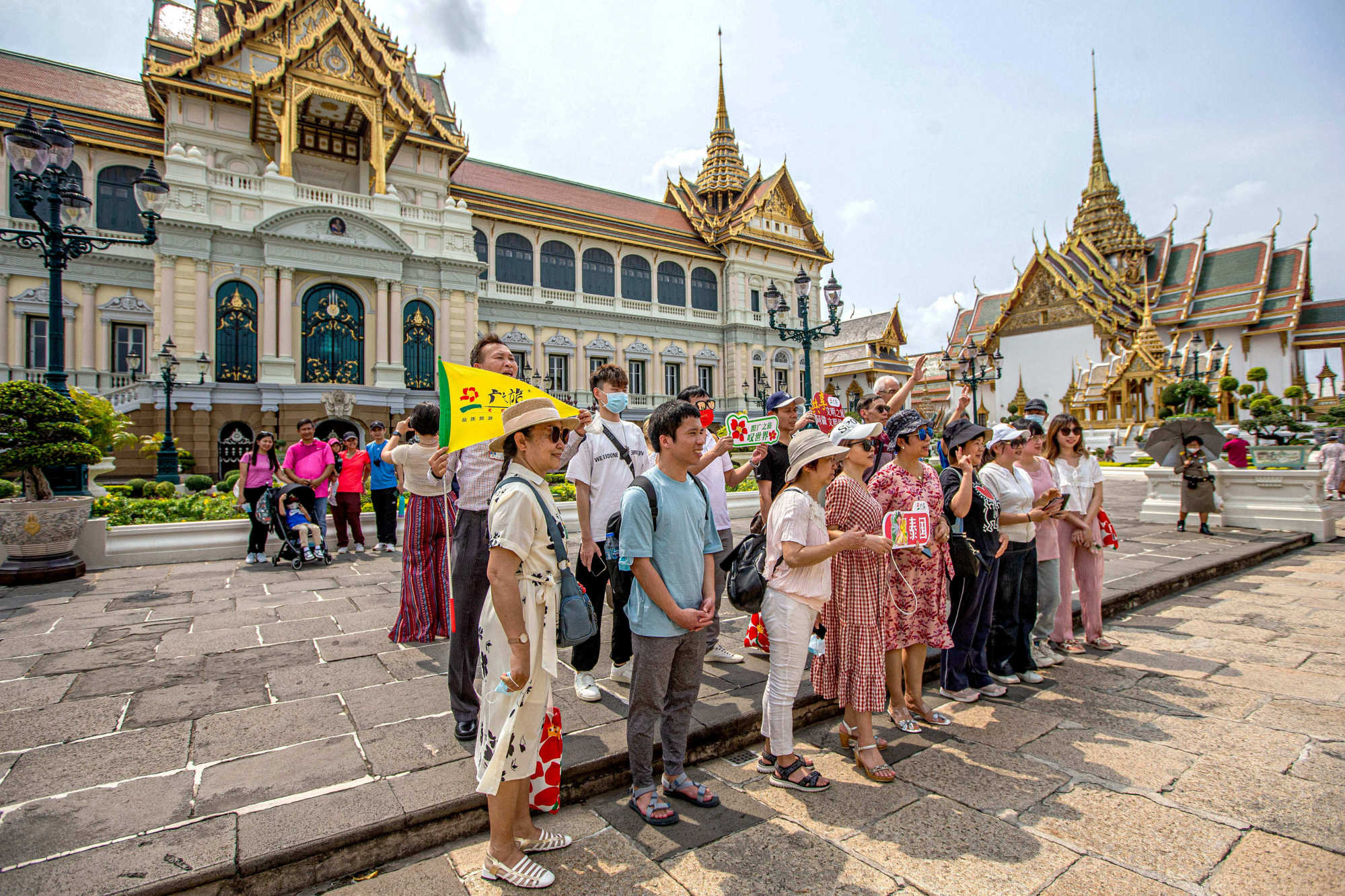 Thai tour guides fret over return of Chinese interlopers, asking: who gains from mass tourism?
Thai tour guides fret over return of Chinese interlopers, asking: who gains from mass tourism?
- Many
Chinese travellers are being directed to Chinese tour agents instead of
local ones, a shady business model which diverts cash from Thailand
Despite a lifetime of expertise – and fluency in English and Mandarin – Thai tour guide Saichon Chounchou says he is being pushed down the pecking order as Chinese tourists return to Thailand only to be shepherded around by their own nationals who are prohibited to work in the profession.
“You can find them at every tourist destination: Phuket, Samui, Chiang Mai, Bangkok. Everywhere the authorities turn a blind eye,” the frustrated 48-year-old told This Week in Asia.
As tourists from China, South Korea, Russia and elsewhere make a return, experts warn increasing numbers of visitors are being directed to tour agents from overseas – with most, according to Saichon, set up to siphon money away from Thailand.
Being a tour guide is a reserved profession for Thai citizens, and foreigners found breaching the regulation face fines or deportation. Yet it goes on in plain sight, says Saichon, explaining rampant corruption has allowed foreign-run tour companies to soak up profits from an industry that accounts for about 12 per cent of the nation’s economy.

“I am at a disadvantage because I play by the rules,” Saichon said.
China is among Thailand’s top sources of foreign visitors. In 2019, a record 11 million Chinese tourists visited the country, a quarter of all foreign visitors that year.
This year, as pandemic border controls are scrapped virtually everywhere, the Thai government is aiming to attract up to 25 million foreign arrivals, among them at least 5 million from China.
Their spending is meant to offer a long-needed boost to the legion of Thai tour operators, bus drivers, scuba package operators, hotels, tuk-tuk drivers, restaurants and souvenir sellers who saw incomes wiped out during the pandemic and savings chewed up by surging inflation.
Instead, as the tourists start to flow back in, Thai guides say they are facing illegal competition.
Back with a bang
The Chinese tour guide business model was dormant throughout the pandemic, experts say, but the relaxation of China’s strict border controls has brought it roaring back to life.
“Pre-Covid, Chinese tour groups hired Thai guides only to accompany them while the working guides were Chinese,” said Chada Triamvithaya, a Chinese studies expert at King Mongkut’s Institute of Technology Ladkrabang in Bangkok.
“Post-Covid, Chinese tour groups or groups from Hong Kong or Taiwan have become smaller and they need a more tailored travel schedule so they use Chinese-run travel agents who hire Chinese citizens in Thailand.”
Many Chinese tour guides are on student visas, said Chada, explaining that they gain work by offering cheaper fees but get commission for feeding customers into Chinese-owned businesses in tourist areas.
“So in the end Thai businesses, and industry, don’t gain from tourism activities,” she said.
Paisarn Suethanuwong, one of the country’s estimated 5,000 Mandarin-speaking Thai tour guides, said he was fed up with a system he believed was rigged against local guides.
He is rallying support from the Professional Tourist Guides Association of Thailand and aims to submit a petition to the Thai government in the coming days, urging action to prevent the benefits of tourism disappearing overseas.
“Chinese tour agents often sell tour packages at a very low price,” he said. “Tour guides, Thai or Chinese, often find themselves competing for commission fees that are attached to selling tourists optional tour packages once they land in Thailand.”
There were around 59,000 licensed tour guides in Thailand as of January 2023, according to the Department of Tourism.
In January, after China reopened, Thai Labour Minister Suchart Chomklin said the issue of foreign tour guides was damaging tourism employment and urged the public to report the use of foreign tour guides to a government hotline.
Chinese money
The issue of how Chinese money circulates in the Thai economy was catapulted into the spotlight late last year when a Chinese man named Tuhao, who was granted Thai citizenship, was arrested and charged with money laundering and drug crimes.
He was accused of running an enormous illegal business network moving money through jewellery, casinos and large entertainment businesses for a mainly Chinese clientele in Thailand. He denies all allegations.
Yet his case has lifted the lid on how foreign businesses have a grip on part of Thailand’s economy.
Thai police investigators say foreign mafias use corrupt local officials to enter the country and Thai “nominees” to set up front companies – with 51 per cent local ownership – which then mushroom beyond control.
“Many of these grey-business owners started in tourism before moving on to expand in other industries,” added tour guide Paisarn.
His peer, Saichon, has taken great pride in showing tourists the delights of his country over a 27-year career built up through passion and know-how, which is now in jeopardy as foreigners vacuum up his business.
“It’s more than just telling tourists to go left or right,” he said. “I carry Thailand’s image on my shoulders.”







No comments:
Post a Comment
Note: Only a member of this blog may post a comment.